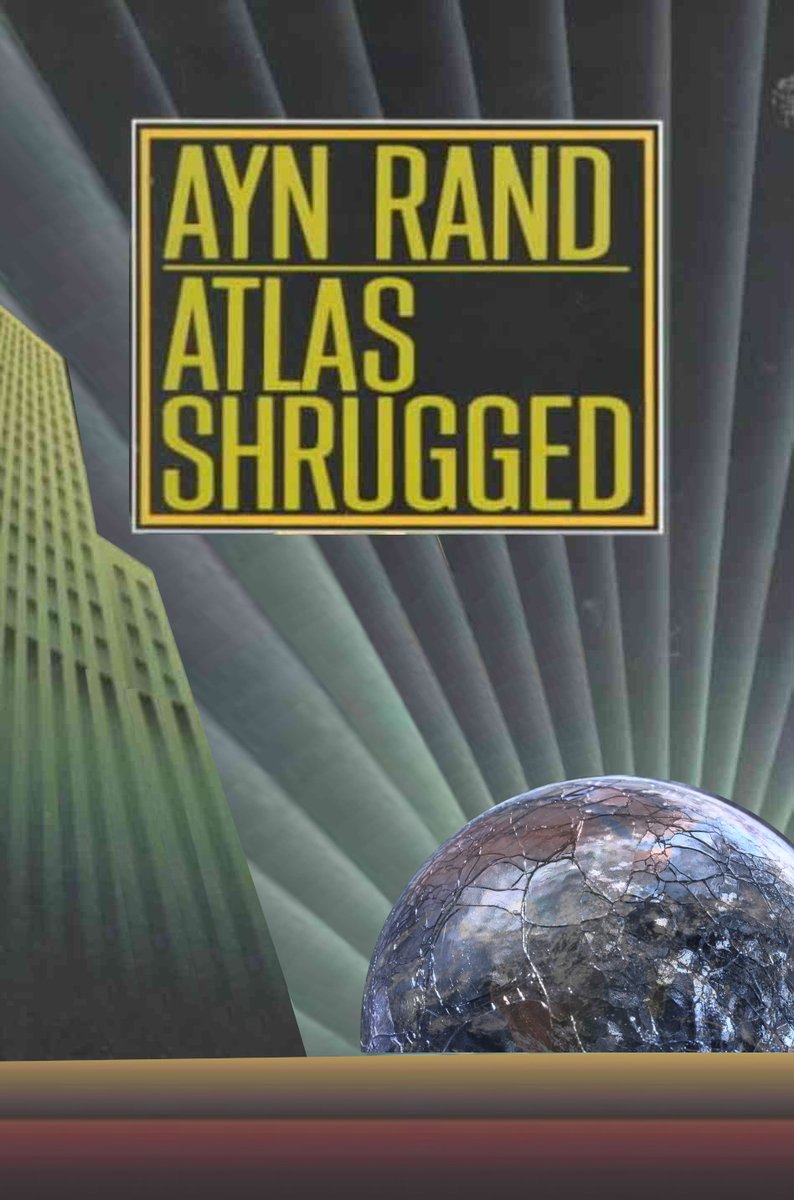
Doctors use the term "crisis" to refer to the crossroads where the patient improves or goes into terminal decline. In that sense, we are living through a major crisis, a juncture revealed by the pandemic that we have yet to traverse.
1/
1/

(If you'd like an unrolled version of this thread to read or share, here's a link to it on pluralistic.net, my surveillance-free, ad-free, tracker-free blog:)
pluralistic.net/2021/06/03/jit…
2/
pluralistic.net/2021/06/03/jit…
2/
For 40 years, the gospels of market efficiency and shareholder value have demanded that we dismantle the state (because markets are efficient, while states are not) and hollow out companies ("trimming fat" to serve the almighty shareholder).
3/
3/
Thus state capacity has waned while companies themselves became more brittle: their employees turned into contractors, their cash-reserves liquidated as dividends and buybacks, their supply chains stretched over impossible distances with multiple critical points of failure.
4/
4/
Human civilization became increasingly fragile, while the threats it faces increased in suddenness and severity.
5/
5/
Today, "the world has run out of everything" from microchips to lumber to housing to running shoes to specialised resins used in car paint. As @petersgoodman and @NirajC write for the @nytimes, these shortages share a common underlying cause.
nytimes.com/2021/06/01/bus…
6/
nytimes.com/2021/06/01/bus…
6/
In the name of efficiency, companies have offshored their manufacturing or outsourced it altogether. Chasing cheap labor and lax regulation while shifting of risk to subcontractors half a world away works great, but fails very badly.
7/
7/
Now, companies whose entire production has ground to a halt because the distant factory that is the sole source of a key input are scrambling to introduce slack and buffers into their "lean," "just in time" manufacturing systems.
8/
8/
But they're hamstrung. First, because it costs a lot to build new onshore capacity, especially after four decades of dismantling the supply-chains that serve domestic manufacturing and sidelining the skilled workforce that operated them.
9/
9/
Intel, for example, is spending $20B to build new chip fabs in Arizona - sounds great until you learn that Intel spent $26B on socially useless stock-buybacks in the two years leading up to the pandemic.
10/
10/
But it's not just a lack of funds that stands in the way of onshoring production (after all, the corporate-friendly Trump stimulus poured trillions in public money onto the largest companies' balance-sheets).
11/
11/
The hard part spending on measures whose benefit is broadly shared, among workers, customers, and society, rather than providing immediate benefit to shareholders who don't care if the company folds, so long as they get to liquidate their shares at a profit first.
12/
12/
And this shareholderism extends to the insurance industry and other risk-mitigating systems like default swaps, whose own shareholders and issuers and regulators have shown repeated willingness to sacrifice long-term health for short-term gains.
13/
13/
Whether that's AIG writing policies on garbage CDOs to maximize quarterly revenues despite trillions in exposure, or Deutschebank underwriting the mass fraud of Greensill.
14/
14/
As the Harvard Business School's Willy C Shih told the authors, "Consumers won’t pay for resilience when they are not in crisis." What Shih means is, "Shareholders won't accept lower returns for resiliency, which means the burden must be carried by consumers."
15/
15/
Despite papering over that difference, Shih isn't wrong. Companies - increasingly responsible to just a handful of private equity barons and reps from massive index funds - are in no position to put their long-term health ahead of those powerful, unaccountable shareholders.
16/
16/
And yet, the crisis is upon us, and even if we weather it, there are more crises on our horizon. Wildfire season is almost here, more floods will come this summer and fall, and the eviction mill is about to go into overdrive.
17/
17/
The last time we faced a crisis of this kind was after the 2008 crash. Boy did we fuck that one up. Take California: facing a budget crisis as state taxes collapsed, the legislature cut everything it could lay its hands on.
pluralistic.net/2020/03/29/gri…
18/
pluralistic.net/2020/03/29/gri…
18/
One of those cuts was to the Health Surge Capacity Initiative, created after the 2006 bird-flu scare: a $200m stockpile of 50m N95 masks, 2400 portable ventilators, 21000 on-demand patient beds, and the gear to establish three vast emergency hospitals on a moment's notice.
19/
19/
The stockpile came with a $5.8m/year upkeep bill - charging the batteries in the ventilators, paying for the warehouses, etc - and in 2008, California decided it couldn't afford that bill anymore so it sold off the stockpile for pennies on the dollar.
20/
20/
One thing we learned (again) during the pandemic is that deficit spending isn't itself inflationary: when there is slack in the economy, the central bank can create trillions of dollars without inflation risk.
21/
21/
After 2008, we gave banks a blank check, but told the states they were on their own. California saved dollars (created by typing zeroes into a spreadsheet at the central bank) and lost ventilators (created in factories that ran out and then shut down during the pandemic).
22/
22/
Today, the GOP is stalling Biden's infrastructure bill, and their anemic counteroffer is to claw back the money committed to the states - to force the states to jettison whatever stockpiles and buffers they have managed to cling to, to tee up the next crisis.
23/
23/
The doctrine that governments CAN'T do anything to prepare for the future and that businesses SHOULDN'T do anything to prepare for the future has produced fantastic wealth for a tiny handful of people and put the rest of us in mortal peril.
24/
24/
That's the crisis and the crossroads - not a chip shortage or even a runaway virus; but rather what we DO about these facts. Do we reform our markets and rebuild our states, or do we surrender to a future spiral of worsening emergencies with no end in sight?
eof/
eof/
• • •
Missing some Tweet in this thread? You can try to
force a refresh









